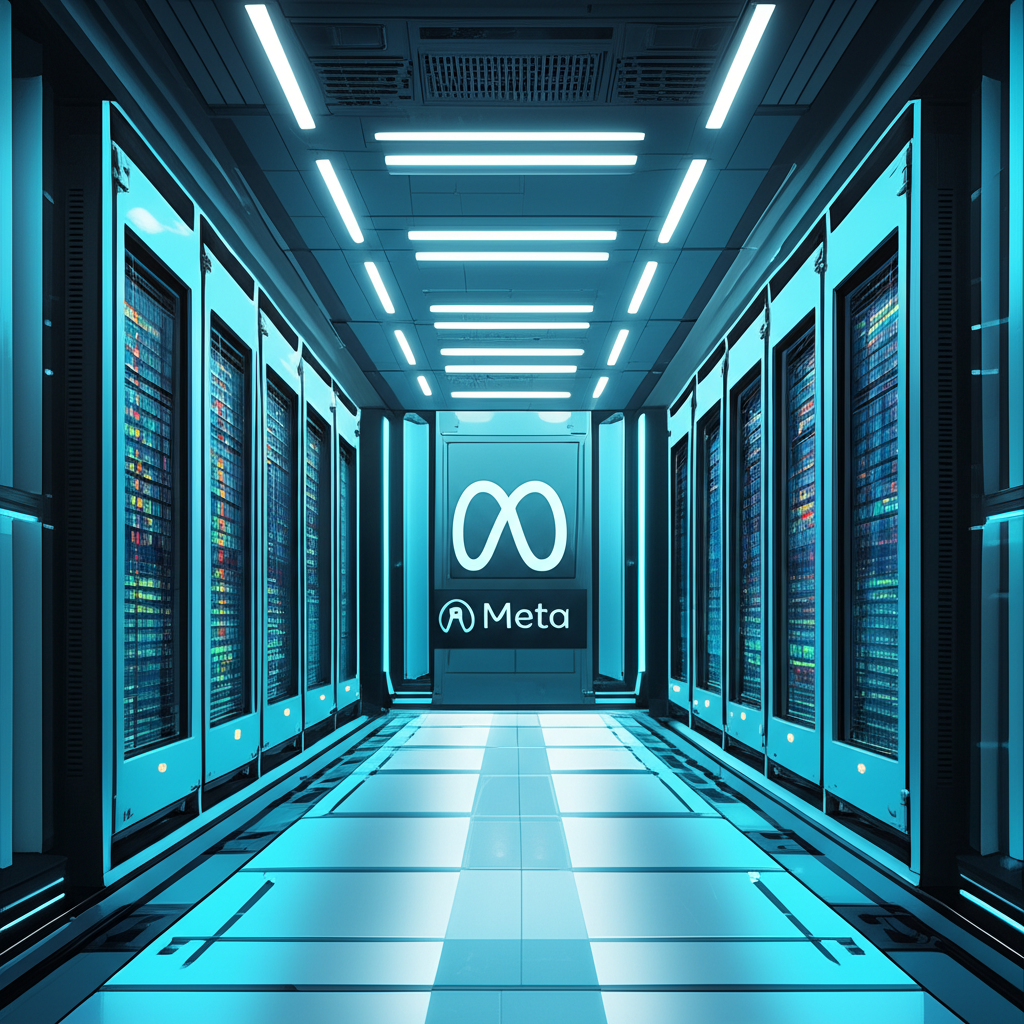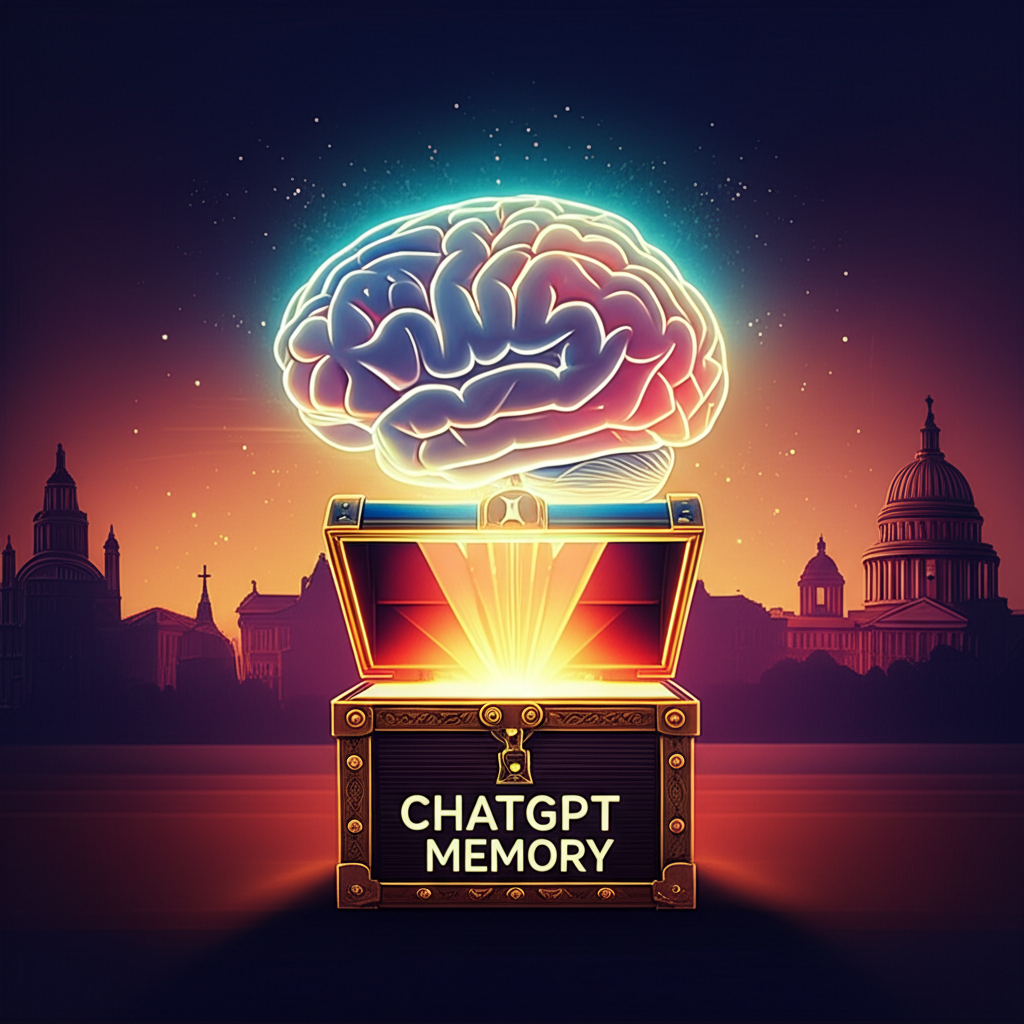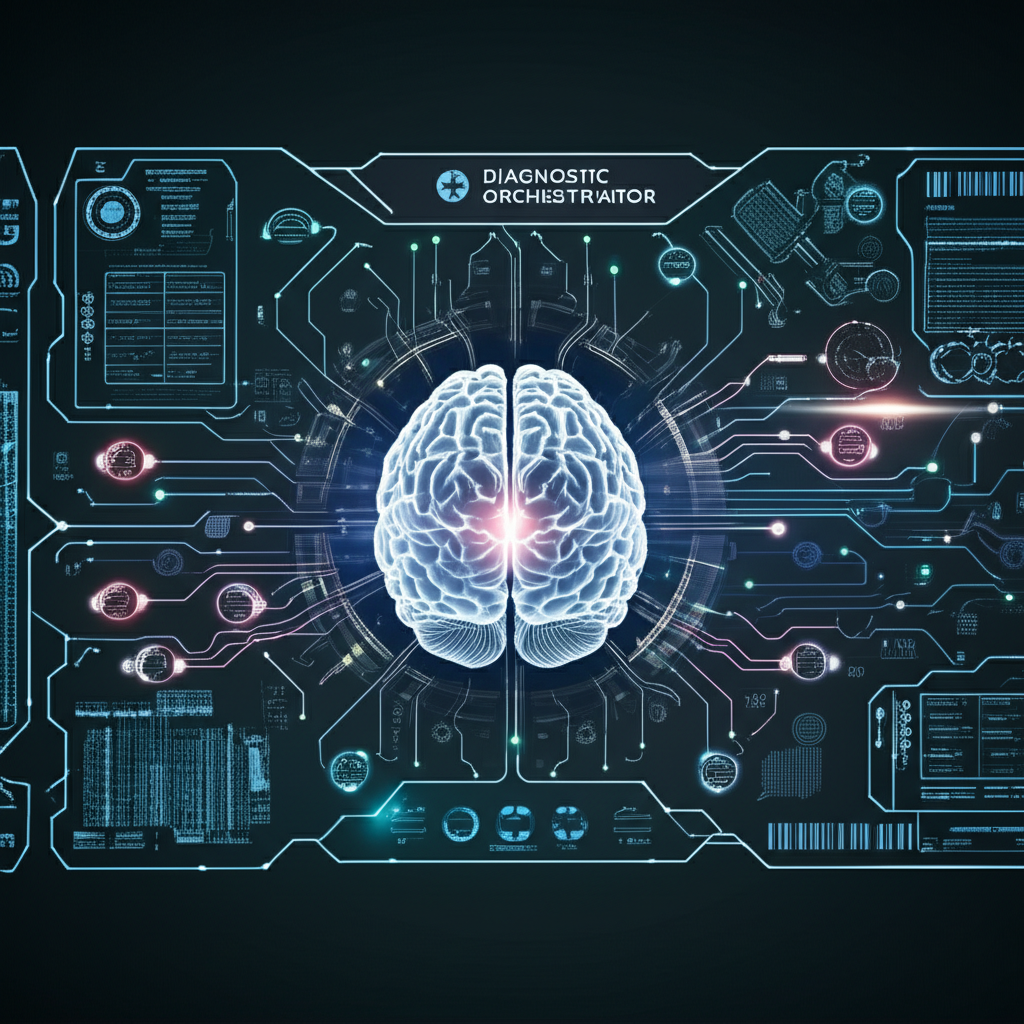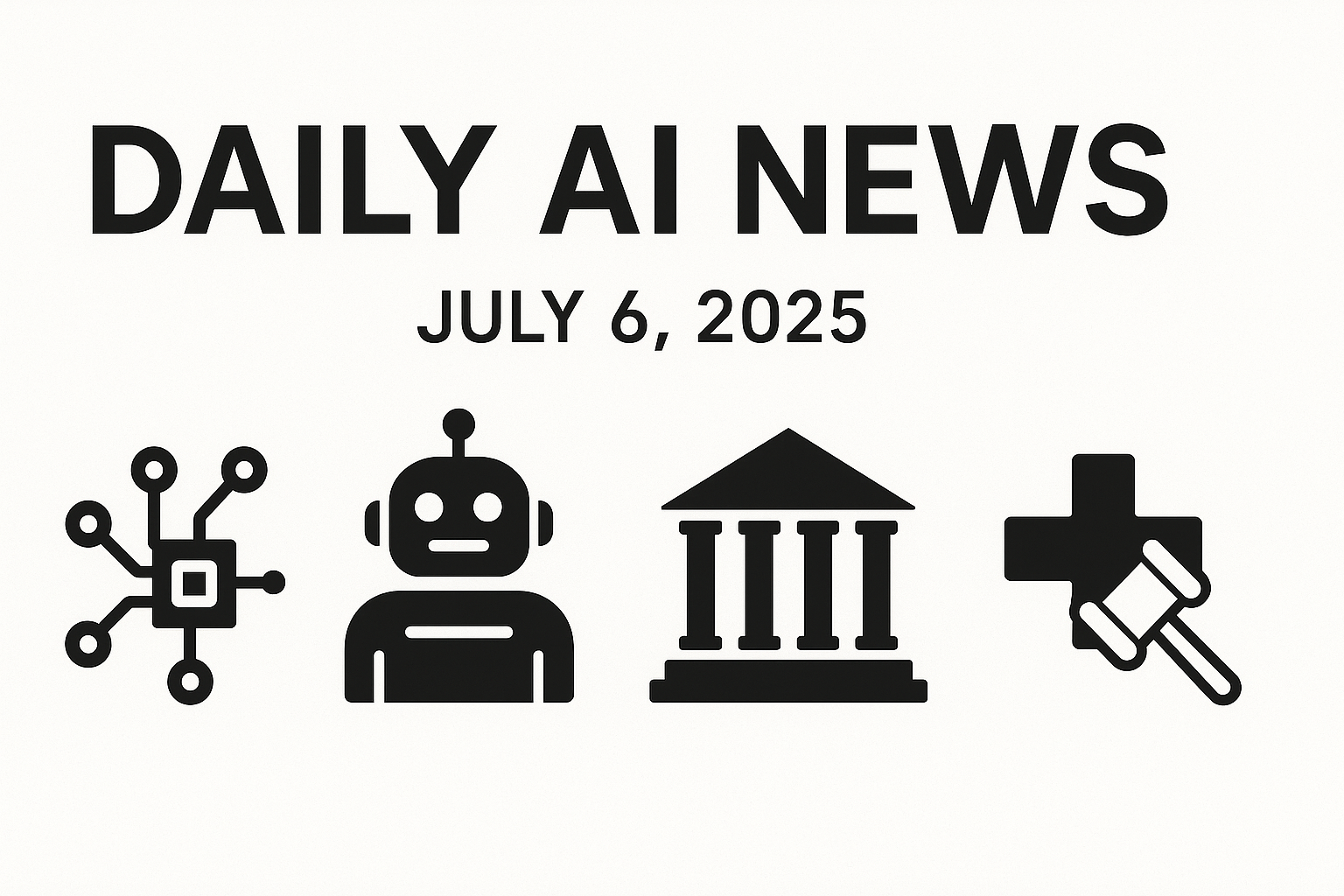AI Today: Your Daily Dose of Artificial Intelligence News
The world of Artificial Intelligence is evolving at breakneck speed, and staying informed is more crucial than ever. Welcome to AI Today, your daily dose of the most important developments shaping the future. Each day, we'll bring you a concise yet comprehensive overview of the latest AI news, spanning everything from the pursuit of Artificial General Intelligence (AGI) to the ever-evolving landscape of AI regulation. Today, we'll delve into Meta's ambitious AGI initiative, explore OpenAI's new defense contract and memory upgrade, and examine Microsoft's groundbreaking advancements in medical diagnostics.
Meta Superintelligence Labs: The New AGI Powerhouse?

Meta is making a bold move in the race for Artificial General Intelligence (AGI) with the launch of Meta Superintelligence Labs. Spearheaded by Meta CEO Mark Zuckerberg, this new initiative aims to consolidate Meta's efforts in achieving true AGI—AI that possesses human-level cognitive abilities across diverse tasks. The strategic importance of this move is underscored by Meta's massive $14.3 billion investment and the appointment of former Scale AI CEO Alexandr Wang as Chief AI Officer. Furthermore, Meta is aggressively pursuing top AI researchers, offering lucrative signing bonuses reaching up to $300 million over four years, signaling the depth of their commitment.
This aggressive Meta AGI strategy has significant implications for the competitive landscape. By centralizing data-labeling, talent acquisition, and advanced R&D under the Meta Superintelligence Labs umbrella, Meta aims to accelerate its progress towards AGI, putting pressure on rivals like OpenAI and Google to match its scale and resources. The Meta Superintelligence Labs impact on the AGI race will be closely watched as the company attempts to close the gap and potentially leapfrog its competitors in the quest for truly intelligent machines.
OpenAI Secures Government Funding & Unlocks ChatGPT Memory

OpenAI inked a $200 million deal with the U.S. Department of Defense for its “OpenAI for Government” program (deployment in July 2026). This initiative aims to explore and implement AI solutions for various defense applications, with the program officially launching in July of next year. Details of the OpenAI defense contract reveal a multifaceted approach, focusing on areas such as cybersecurity, logistics optimization, and enhanced data analysis. Meanwhile, ChatGPT Plus users can now leverage persistent memory, letting the model recall past conversations across sessions. This ChatGPT memory upgrade allows for a more personalized and seamless user experience, as the AI can remember preferences, past interactions, and specific instructions across multiple sessions. This means fewer repetitive prompts and a more efficient workflow. The benefits of this memory upgrade are substantial, fostering a more intuitive and helpful AI assistant. However, the intersection of AI and government/defense also raises important questions. While AI offers the potential to enhance national security and improve efficiency, ethical considerations regarding bias, transparency, and accountability must be carefully addressed. The long-term implications of integrating advanced AI systems into defense strategies warrant ongoing scrutiny and public discourse.
Anthropic's Claude: Now Faster and Smarter With Tool Parallelism
Anthropic continues to push the boundaries of AI capabilities with its latest releases, Claude Opus 4 and Sonnet 4. A key highlight of these new models is their enhanced tool parallelism—the groundbreaking ability to run multiple external tools simultaneously. Coupled with extended reasoning "think-modes," these models are designed to tackle complex tasks with unprecedented efficiency. The implications for developers and enterprises are significant, as this enhanced functionality brings AI closer to becoming a reliable, production-grade assistant.
In a testament to their coding prowess, Opus 4 achieved a remarkable 72.5% score on the SWE-bench coding test, earning the distinction of "best coding model." This benchmark underscores the model's advanced capabilities in software development tasks. Speaking of endings, older Claude 2/3 versions are slated for retirement by July, making way for these next-generation models. For those relying on the older versions, this shift necessitates a transition to either Sonnet 4 or Opus 4 to maintain continuity and access to the latest AI advancements. The Anthropic Claude end of life for these older models signals a commitment to pushing forward with enhanced performance and newer technologies. Furthermore, detailed Claude Opus 4 performance benchmarks reveal substantial improvements in various cognitive tasks, solidifying its position as a leader in the AI landscape.
Microsoft's AI Diagnostic Orchestrator: The Rise of Medical Superintelligence

Microsoft’s “Medical Superintelligence” has arrived in the form of the AI Diagnostic Orchestrator, or MAI-DxO. This system uses multiple specialized AI agents to achieve an impressive 85.5% accuracy on complex diagnoses—over four times better than the diagnostic accuracy rate achieved by human doctors, which averages around 20%. What sets MAI-DxO apart is its ability to provide explainable AI in medical diagnosis. The system doesn’t just give a diagnosis; it explains its reasoning, presenting its findings like a panel of virtual specialists. This transparency is crucial for building trust and acceptance among medical professionals. The potential for medical superintelligence to revolutionize healthcare is enormous. MAI-DxO could drastically reduce diagnostic errors, speed up patient care, and improve outcomes, especially in underserved areas where access to specialists is limited. However, the rise of AI in diagnostics also brings significant ethical and legal challenges. Questions around patient data privacy, algorithmic bias, and liability in case of misdiagnosis need to be addressed carefully. As we move closer to widespread adoption of systems like Microsoft MAI-DxO, accuracy and addressing these challenges is paramount. The long-tail search query "Microsoft MAI-DxO accuracy" reflects growing public interest in these advancements, while “medical AI diagnostic challenges” highlights the ongoing need for research and policy development in this rapidly evolving field.
AI Revolutionizes Fertility and Medical Imaging: New Diagnostic Frontiers
AI is making significant strides in transforming diagnostics across various medical fields, offering hope and improved outcomes. A notable breakthrough is the STAR system, which employs AI to detect hidden sperm in severe infertility cases, offering a new avenue for conception for couples facing significant challenges. This innovative system exemplifies how AI can overcome limitations in traditional diagnostic methods, opening doors to possibilities previously considered unattainable. In the realm of imaging, Dutch researchers have developed an AI capable of flagging micro-brain tumors with an impressive 97.4 % accuracy in imaging scans, showcasing the potential for early and precise detection of critical conditions. Furthermore, Northwestern's iSeg tool provides expert-level lung tumor segmentation in 3D, matching the accuracy of experienced radiologists. These advancements collectively highlight AI's transformative impact on diagnostics, promising earlier interventions, more precise treatments, and ultimately, better patient outcomes. The STAR AI system fertility enhancement shows how AI is not just about complex algorithms, but about delivering practical solutions that directly improve people's lives. These tools not only offer more accurate diagnoses but also have the potential to speed up the entire diagnostic process, allowing medical professionals to focus on treatment and patient care. It's clear that we're entering a new era of medical diagnostics, driven by the power of artificial intelligence and its ability to revolutionize healthcare.
Google's AI Science Division: Decoding DNA and Predicting the Weather

Google continues to push the boundaries of AI's potential with breakthroughs in scientific domains. AlphaGenome is making strides in deciphering non-coding “dark matter” DNA (regulatory regions that don’t code proteins), analyzing over 1 million base pairs to predict gene expression. This long-tail research into AlphaGenome dark matter DNA holds immense promise for personalized medicine, allowing for more targeted treatments based on an individual's unique genetic makeup. Simultaneously, Google's Weather Lab is leveraging AI to enhance tropical cyclone forecasts in partnership with the U.S. National Hurricane Center. This initiative aims to improve AI weather forecasting accuracy, leading to better preparedness and climate resilience in vulnerable regions. By applying AI to both the microscopic world of genomics and the macroscopic realm of weather patterns, Google is demonstrating the versatility and transformative power of AI in addressing some of humanity's most pressing challenges.
EU AI Act: Navigating the World's First Comprehensive AI Law
Despite pleas from 46 major firms, the European Commission is moving full steam ahead with the EU AI Act, establishing the world's first comprehensive legal framework for artificial intelligence. The Act's implementation follows a strict timeline: initial bans on particularly risky AI systems took effect in February 2025, general-purpose AI obligations kick in August 2025, and the more comprehensive, high-risk rules will be enforced starting in 2026. This firm schedule provides a degree of certainty for businesses operating within the EU, but also presents significant compliance challenges.
The EU AI Act classifies AI systems based on risk, with unacceptable-risk systems (e.g., those that manipulate behavior or enable social scoring) being banned outright. High-risk systems, used in areas like healthcare, law enforcement, and critical infrastructure, are subject to stringent requirements for data governance, transparency, and human oversight. This risk-based approach contrasts sharply with the United States' sectoral approach, where AI regulation is handled by individual agencies focusing on specific industries.
While proponents tout the Act's potential to foster responsible innovation, the EU AI Act criticisms are mounting. Many companies, including some of the world's largest tech firms, have voiced concerns about the Act's potential to stifle innovation and competitiveness within the EU. They argue that the broad definitions of AI and the stringent compliance requirements could make it difficult for European companies to compete with rivals in regions with less stringent regulations. Navigating EU AI Act compliance is already proving to be a complex and costly undertaking, particularly for smaller businesses. Despite these concerns, the European Commission remains steadfast in its commitment to balancing innovation with robust safeguards, setting the stage for a global debate on the future of AI regulation. For example, while ChatGPT is not specifically mentioned in the act, AI tools of its kind will likely be impacted when the general-purpose AI obligations kick in.
US Senate Rejects AI Moratorium: States Retain Regulatory Power
By a resounding 99–1 vote, the Senate struck down a proposal that would have barred states from enacting AI rules for a decade—preserving state autonomy on issues like algorithmic bias and deepfake regulation. This decision effectively ends the AI moratorium debate at the federal level, leaving individual states free to legislate how AI is used and governed within their borders. This approach offers the potential benefit of localized oversight, allowing states to address emerging AI harms more swiftly and nimbly than a one-size-fits-all federal approach might allow. For instance, states can tailor regulations to address specific regional concerns, such as algorithmic bias in local hiring practices or the misuse of deepfakes in state elections. However, the decentralized approach also presents potential drawbacks. A patchwork of different state laws could create compliance challenges for businesses operating across state lines and potentially stifle innovation if regulations are too restrictive in some areas. The long-tail implication of this decision is a complex interplay between state and federal roles in US AI regulation, one that will likely evolve as AI technology continues to advance and its societal impacts become clearer.
Global AI Safety Initiatives: G7, UK, and Beyond
International coordination on AI safety and ethics took center stage this week, with several key developments signaling a growing global consensus on responsible AI development. G7 ministers advanced common AI safety standards under the Hiroshima AI Process, aiming to establish a framework for trustworthy AI systems. This initiative, formally launched in 2023, seeks to harmonize regulations and promote collaboration on AI risks and opportunities among leading economies. A key detail within the Hiroshima AI Process is its focus on identifying and mitigating potential harms arising from AI, including bias, discrimination, and misuse. Building on last year’s Bletchley Park gathering, the UK is preparing its second Global AI Safety Summit. The Global AI Safety Summits aim to foster dialogue between governments, industry, and academia to address the most pressing challenges in AI safety, such as ensuring AI alignment with human values and preventing unintended consequences. Furthermore, Kazakhstan is drafting its own transparency-and-oversight legislation, reflecting a broader trend of nations implementing measures to govern AI development within their borders. These efforts are crucial to prevent an AI “race to the bottom,” where countries might sacrifice safety and ethical considerations in pursuit of rapid technological advancement. By establishing common standards and promoting responsible innovation, the global community can ensure that AI benefits all of humanity.
AI Job Market Shift: Layoffs and the Rise of New AI Roles

The AI revolution continues to reshape the job market, presenting both challenges and opportunities. Microsoft's recent announcement of layoffs within its Xbox division serves as a stark reminder of AI's increasing role in automation, displacing what the company called “routine roles.” While specific AI job displacement statistics are still being compiled, initial analyses suggest that automation will disproportionately affect roles involving repetitive tasks.
However, this is only one side of the coin. Companies like Scale AI are experiencing significant growth and actively hiring thousands of individuals for new, AI-centric positions. These roles include Reinforcement Learning from Human Feedback (RLHF) engineers, prompt designers, and AI ethicists – demonstrating a clear shift towards jobs that require uniquely human skills in collaboration with AI. The job outlook for RLHF engineers, in particular, is exceptionally strong, with demand far exceeding supply.
This evolving landscape underscores the critical need for reskilling and education. As AI takes over routine tasks, the focus must shift towards developing expertise in areas such as AI development, deployment, and ethical oversight. Equipping the workforce with the skills needed to thrive in an AI-driven world is essential to mitigating the negative impacts of job displacement and ensuring that the benefits of AI are widely shared.
DeepSeek's Breakthrough: Closing the AI Math Gap
China's DeepSeek released R1-0528, showcasing a significant leap in math reasoning capabilities. The model's AIME math-test score jumped from 70% to an impressive 87.5% due to a strategic increase in "reasoning tokens," effectively expanding the context length from 12,000 to 23,000 per question. This advancement highlights the progress being made in Chinese LLM development and the broader effort to enhance AI's ability to tackle complex mathematical problems. Token-efficient architectures and long-context reasoning are proving crucial in closing the performance gap with top Western LLMs. The improved DeepSeek R1-0528 performance signals a narrowing of the divide, particularly in specialized areas like mathematical problem-solving, paving the way for more robust and capable AI systems originating from China.
NVIDIA's New RTX 50 Series: Powering the Next AI Revolution
NVIDIA is rapidly approaching a $4 trillion valuation, fueled by the anticipation surrounding its latest hardware innovations, most notably the RTX 50 Series. At the forefront is the GeForce RTX 5090, boasting impressive NVIDIA RTX 5090 specs, including 32 GB of GDDR7 memory and 21,760 CUDA cores, promising a 2x performance boost compared to the RTX 4090. This leap in processing power isn't just for gamers; it's a crucial step in advancing AI capabilities across various sectors. The demand for this cutting-edge hardware is evident in Oracle's ambitious plan for an Oracle AI accelerator purchase, involving 400,000 GB200 AI accelerators for a staggering $40 billion. This investment underscores the vital role of powerful hardware in enabling and accelerating AI model training and development. Ultimately, cutting-edge hardware underpins every AI advance—fueling both consumer gaming and enterprise model training, paving the way for more sophisticated and efficient AI solutions.
The AI Horizon: Staying Ahead in a Rapidly Evolving World
From Meta's ambitious AGI quest and OpenAI's government contracts to Anthropic's enhanced tool use and Microsoft's diagnostic breakthroughs, today's AI news paints a picture of relentless progress. We've also seen AI revolutionize fertility treatments, cancer detection, and weather forecasting, while regulators grapple with the implications through the EU AI Act and debates in the U.S. Senate. The G7 is pushing for global safety standards, even as the job market sees shifts with Xbox layoffs and the rise of specialized AI roles. DeepSeek's math reasoning improvements and NVIDIA's hardware advancements further underscore the breakneck pace of innovation. Staying informed about these developments is no longer optional—it's essential. As AI reshapes industries and redefines possibilities, adaptability is your greatest asset. Don't miss tomorrow's briefing for another insightful glimpse into the ever-evolving world of AI! We encourage you to share your thoughts and discuss these headlines with your peers. What developments are most impactful to you?
Keywords: AI news, artificial intelligence news, daily AI news, AI roundup, AGI, Meta Superintelligence Labs, OpenAI, Anthropic, AI regulation, EU AI Act, AI safety, AI ethics, Medical AI, AI research, AI applications
Hashtags: #AINews #ArtificialIntelligence #TechNews #MachineLearning #AISafety
For more AI insights and tool reviews, visit our website www.best-ai-tools.org, and follow us on our social media channels!
X (Twitter): https://x.com/bitautor36935Instagram: https://www.instagram.com/bestaitoolsorg/Facebook: https://www.facebook.com/profile.php?id=61577063078524LinkedIn: https://www.linkedin.com/company/best-ai-tools-orgYouTube: https://www.youtube.com/@BitAutorMedium: https://medium.com/@bitautor.deTelegram: https://t.me/+CxjZuXLf9OEzNjMyReddit:



